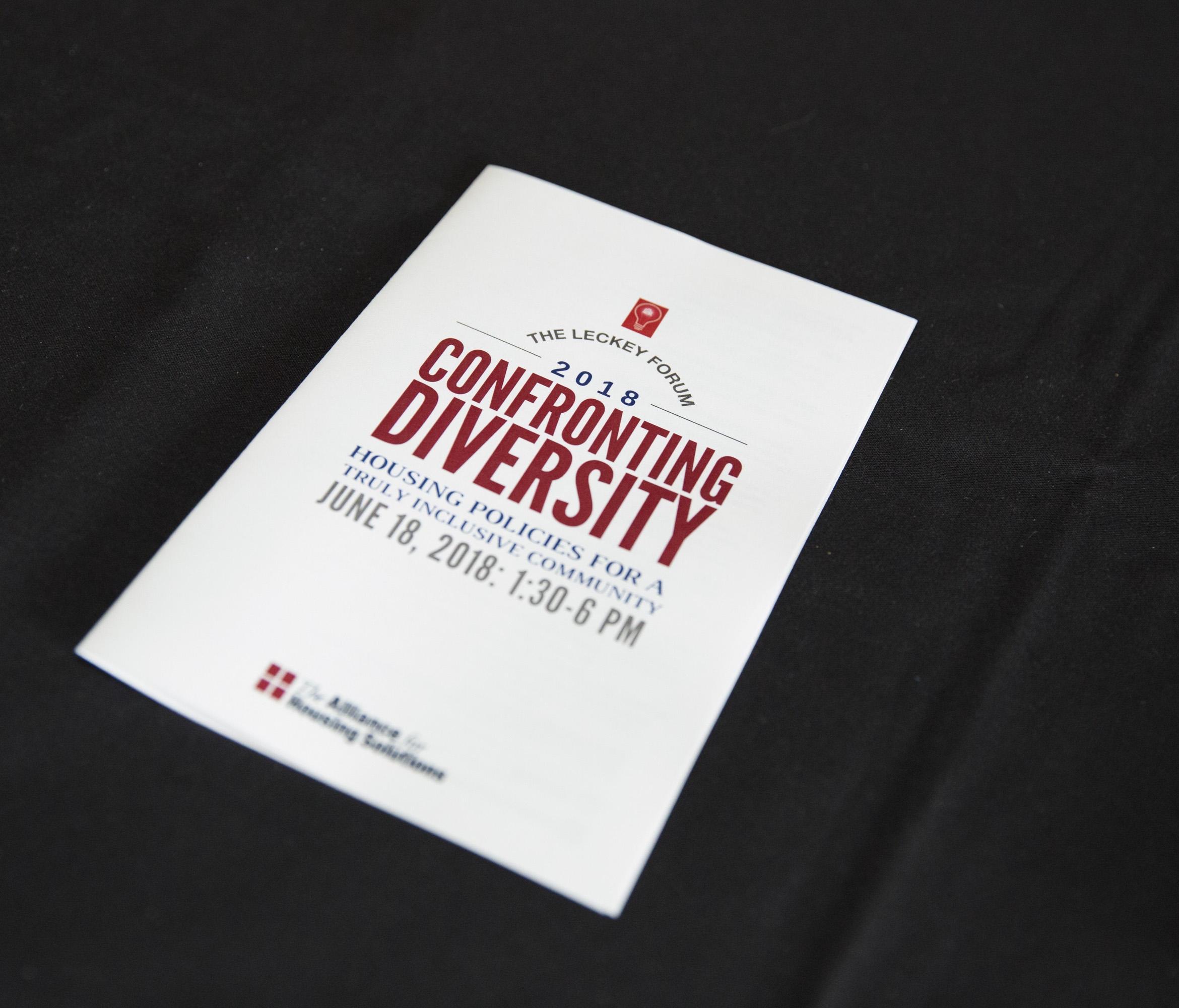“Arlington will be a diverse and inclusive world-class urban community with secure, attractive residential and commercial neighborhoods where people unite to form a caring, learning, participating, sustainable community in which each person is important.” — Arlington County Board
In honor of the fiftieth anniversary of the Fair Housing Act, the 2018 Leckey Forum explored racial segregation in Arlington’s neighborhoods. Panelists offered insight to the historical context of segregation and examined current policies that effect socioeconomic and racial diversity within our community today.
Read a recap of the event, view the slides, and watch the following videos to learn more about Arlington’s challenges and opportunities in fulfilling Arlington County’s vision.
AHS board president David Leibson remembers founding member Jack Cornman and his commitment to housing affordability in Arlington.
In 1900, Arlington’s population was 38 percent African American. By 2010, it was 8.2 percent.
Michelle Winters, Executive Director of Alliance for Housing Solutions, gives an overview of the legacy of segregation in Arlington’s neighborhoods.
“The biggest challenge is to figure out how we change our land use policies to create more density where density is appropriate.” Christian Dorsey, Arlington County Board.
See more coverage of Dorsey’s comments on ARLnow.
Before he was a senator,
Tim Kaine spent 17 years as a housing discrimination attorney. He delivered the 2018 Leckey Forum keynote address, which focused on the ways we can move forward in creating more inclusive and affordable neighborhoods.
Dr. Alfred Taylor, Jr., Kitty Clark Stevenson, Dolores Leckey, and Adriana Torres shared personal stories about living in Arlington and working toward inclusive, affordable neighborhoods.
“It is not an accident,” Michael Bader of American University’s Metropolitan Policy Center says of the racial wealth gap. He tells stories that explain the government policies that kept African Americans from housing opportunities and explores current issues that drive segregation.
“Income segregation in this country is rising, which has an impact on racial segregation,” says Richard Kahlenberg of The Century Foundation.
Is it time for an economic fair housing act?
As former Assistant Secretary for Fair Housing Gustavo Velasquez worked at “reducing inequality by using every policy lever and every tool at our disposal to increase housing opportunities across the spectrum of income levels and race.”
He gives an in-depth explanation of the Obama-era Affirmatively Furthering Fair Housing, which was suspended by the Trump administration just weeks before this panel.
Velasquez is now the director of the Urban Institute’s Urban-Greater Washington DC.
“If you don’t do anything you will see a whiter and wealthier county … you need to be affirmatively marketing to low-income families and people of color to get this county into a better space,” says Philip Tegeler, executive director at Poverty & Race Research Action Counsel.
“The primary drivers of economic and racial segregation inthis country are the government policies from 50, 60, 70 years ago that are really embedded in our DNA, in our history, and our communities. … Even today our federal housing programs are moving in the wrong direction.”
Jarrid Green of the Democracy Collaborative explores policies that create inclusive communities at the 2018 Leckey Forum.
What are the issues young adults see as barriers to housing in Arlington? Panelists Tania Bougebrayel, Adele McClure, Eric Brescia, and Saul Reyes weighed in at the 2018 Leckey Forum.
Special thanks to Arlington Independent Media for video production.









